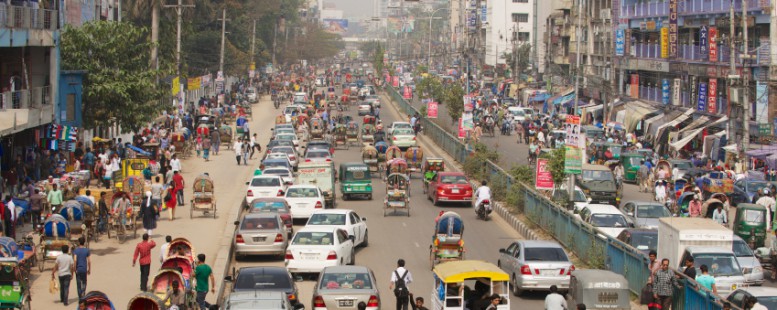Our Opinion: 2015
Bangladesh’s broken politics

It is nine months since I last visited Bangladesh (see ‘news’ May 2014) and commented on its status as a South Asian success story, delivering growth of 5-6% annually for over 20 years. How quickly sentiment can change, and the risks in ‘emerging’ markets come to the fore.
At the start of this month, the Bangladesh Nationalist Party (BNP) added a national strike to the country’s agony following a month of unrest, started by firebomb attacks in the capital, Dhaka, and in eastern Bangladesh. This led to a continuing blockade of roads, railways and waterways that have paralyzed the country. The trigger to the unrest was a banned protest to mark the anniversary of last year’s election, won by the Prime Minister, largely due to the BNP boycotting it.
How may this affect the business community and the economy?
The economy is at major risk from the political violence. The transport and communication system of the country has ground to a halt. Small businesses and farmers are facing severe losses because they not able to sell their products. The crucial textile industry is losing foreign buyers. Economists think that if, this trend continues this year, economic growth will be close to zero this year, against 7% predicted just a few months ago.
Because of the strike and blockade, many foreign buyers linked to the garment sector have cancelled their seasonal tours of Bangladesh. Chairman of the organization, Atikul Islam, said foreign buyers may reduce their orders by between 20% and 40%.
Bangladesh suffers a dysfunctional two party-system where the two leaders are often called ‘the battling begums.’ They have rotated in office for almost 25 years and carry on mutual vendettas at the country’s expense. The BNP accuses the government of trying to create a one-party state. They have certainly entrenched their position by abolishing the ‘caretaker’ system that oversaw elections and abolished the BNP’s main coalition partner, Jamaat-e-Islami, for its Islamic platform. The Government, on the other hand, claims to be combating acts of vandalism and terrorism and has a good record of success.
As the Economist reported earlier this month, more than 10,000 opposition activists have been detained. With the BNP transport blockade, violence and repression worsening, the Army may be forced to act sooner or later. The Government will not accept, it seems, that it faces a political crisis, rather than a simple law and order problem. Politics have broken down. So the Generals may feel that, as they did eight years ago, they have no option but to call ‘time out’ on a political brawl that neither side can win.
On a personal level, I have no idea how I get to the airport tomorrow for a 7am flight, in a blockade, with my hotel unable to arrange transport and unable to guarantee my safety – which I am sure is an exaggeration of a US hotel brand, but their care is appreciated. However, such a situation will be very damaging to international confidence in a country that thrives only on its cross-border trade.
Bangladesh remains poor, but its wealth has been growing fast. Most of its population will never belong to any political party. But their route out of poverty rests too much on the country’s two broken political parties and their rivalry.
